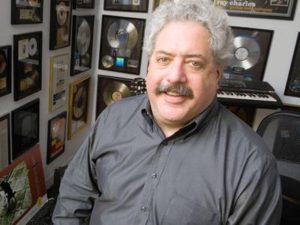Lee Abrams, CEO, MediaVisions
April 17, 2020

by Fred Deane

Lee Abrams
In any industry, there are only a handful of individuals who achieve legendary status, and when it comes to the radio/media business, Lee Abrams more than qualifies. He was a self-starter in the 70’s as part of the Burkhart/Abrams consultancy group, where Lee was an innovator and trendsetter in several areas of our medium.
Over the past 40 years, Lee has been recognized as an instrumental voice in reinventing traditional media and marketing. In his most previous position as Chief Innovation Officer at The Tribune Company, Abrams was responsible for helping reinvent the company’s scores of TV stations, cable channels and newspapers, as well as to help create a new innovation-focused culture. Prior to that, Lee was Chief Programming Officer at XM Satellite Radio. He joined the company as their first employee in June 1998 tasked with helping to create satellite radio, designing the programming and overseeing and training a staff with the mandate to reinvent the sound of radio.
Recently, Lee has reentered the entrepreneurial business by launching MediaVisions which he describes as a firm that is “Not data driven, but very creative driven.” Abrams notes, “I don’t do research, I interpret it. We are positioned to help companies navigate and prosper in traditional media, today’s digital landscape, and evolving disruptive technologies.”
You’ve been in the media/marketing business since the 70’s. What have been the most pronounced changes in the field over the decades?
In the big picture it’s consolidation. New listening technologies such as satellite and streaming, social media and everything internet, followed by a commoditization of radio at the expense of originality…it’s the new wild west.
America has never been in a better position for dramatic new ways and while the 70’s in particular was a time of basking in the changes created in the 60’s, now is time to create things that we can bask in come the 30’s. There’s a new mainstream and it has the need for new ideas in sync with the era
How do much of today’s national programming initiatives conceptually reflect what you did with the Abrams Superstars Rock format back in the days of AOR (Album Oriented Rock)?
That’s a big problem in that little has changed. Stations are still subscribing to programming concepts we and others introduced 40-50 years ago! There is a stall-out of new franchises and image enhancers. Some elements may be timeless trademarks while others need to be retired. The most significant changes have been in systems and economics rather than programming content and marketing techniques.
In terms of geography, national radio done well can be powerful and bad-ass as in Howard Stern, or to a much lesser degree, what we did with Z-Rock. Unfortunately, most national radio is generic and vanilla and listeners are often tricked into thinking it’s local. If you are national, make it soar and flaunt it. If you are local, go for it with a great local vibe intensity. It’s that middle ground of anywhere USA that doesn’t make sense to me.
What are radio’s biggest challenges going forward, and how best can the medium overcome them?
I understand the economic challenges, and the retooling is often needed, but from a creative standpoint, thinking costs nothing. It’s the new currency of change. At a time when radio is threatened from new listening technologies, terrestrial radio should be in creative overdrive.
Thinking. Rethinking. Plotting. Planning. Getting the eyes and ears back on the creative mission. Stations are too simplified at this time of media war.
An amazing station may be simple and clear to a listener but it’s actually a deep and involved process. As a result, listeners are becoming numbers rather than fans, and the numbers are in decline. Time to wake up to the new realities, kill the denial and get in the fight. Implement radio with theater of the mind experiences rather than vanilla utilities. Sometimes radio is its own worst enemy mired in denial. Here are some things that made and killed Rock Radio stations in particular. https://www.leeabramsmediavisions.com/blog/amazing-radio-stations-what-makes-emand-what-kills-em-sort-of-long
How much margin of error exists to recreate radio, and not stray too far from learned “best practices,” or do we need a new set of best practices?
If a station is highly rated and making money than they of course have to be careful not to skew too far from what got them there. Evolution rather than revolution in their case. If a station is marginal, then all bets are off. Other than a few of the timeless basics, it’s time to aggressively throw out the playbook and create radio for 2020 which could be a radical departure from tradition. Tweaking ain’t gonna get noticed. It’s like the old afdi story. Walk into a suffering station. Rethink everything about it but the result is that nothing actually gets done. No one notices and they remain in the toilet. Now is the time for massive reimagination. Create the new playbook. Both in structure and in sound. I wrote a piece about this: https://www.leeabramsmediavisions.com/blog/the-big-ten
How does MediaVisions contrast to other consultancy groups you’ve been associated with and to today’s other brands?
Our current situation is very different from the early days. Back then we’d have format blueprints that we would work with stations to execute and constantly evolve and grow with. There was kind of an army of clients to the point where we’d have our own conventions. Travel and phone interaction were constant and there were a lot of clients. It bordered on being unmanageable because of the size and we constantly added staff consultants and partners to oversee and interact with the growing base of clients. Those days were magic but they’ll never return.
The environment is so different today, where I’m focused on super-serving a small number of clients. And while Burkhart/Abrams somewhat expanded beyond radio stations, my company will focus on multiple areas beyond radio including digital news, music, and media companies with an interest in elevating their creative and event strategies, among other things. I’d rather have a few areas to seriously reinvent than scores of local stations. I’m not so sure that’s even a business anymore as a handful of companies control the bulk of the markets and navigating change appears to be difficult if not impossible with the management complexity and layers of leadership that are not particularly conducive to outside input and culture. Our mantra we’ll try to live up to is: High IQ low BS!
How would you best define MediaVisions core goals for your clients?
I’m in the reimagination business. There are some good data driven companies out there, but my focus is to create new ways of presenting media, helping execute those new ways effectively and achieving financial success for clients from these initiatives…and bending culture along the way.
I have little interest in maintaining the status quo, initiating data (I prefer to interpret it), or tweaking that creates little awareness of change. I think we’re in an era where true noticeable and cool change/evolution is what’ll move things. There are a lot of media products that aren’t #1 or profitable, and it’s their time if they have the courage to be part of a golden era to introduce stunning new approaches. Elevating the average. That’s who I can help.
Given our industry’s high reliance on analytics and data these days, is there a danger of paralysis-by-analysis where the creative/human touch is being compromised?
It’s been paralysis by analysis for years if not decades. I believe in the balance of science and emotion where creativity rules, and then you use analytics and data to see if you’re full of it or not. It seems to be operating the other way around. Of course, research can point to opportunities and again that’s where paralysis sets in as there’s a fear not to aggressively act on the opportunity.
If radio research in its current form was effective there’d be no issues with radio. Everything would be perfect. Either the data is flawed or it’s being grossly misinterpreted. With all that said, if a station is focused on hits as in many forms of Top 40 and HAC, the data is critical on a day to day basis.
But stations tend to see tested songs and assume that’s all there is regardless of format. Get a morning show and test the library and that’s it. It ain’t. And don’t get me started on focus groups when it comes to creative, as that method is a prescription for status quo or average at a time when average won’t cut through. Bottom line is that data is a good thing but how and where it’s used and interpreted is key. Science + emotion. All science and it’ll risk being flat. All emotion and it could go all over the road…quickly.
What were your most valuable takeaways from your experiences at each of XM and The Tribune Company that allowed you to grow as a multi-media specialist?
XM was a PhD in every aspect of media. From hiring to leadership to execution to salesmanship to interacting with other departments and beyond. It was a massive undertaking of unthinkable scale at the time. It required an evangelical presentation from the staff to our fans and the allied industries we worked with including auto, retail, music and financial. The lessons learned and the experiences gained are too lengthy to get into here but suffice to say it was an inspirational learning experience on many, many levels.
Tribune on the other hand was a disaster. The TV and online folks were great, maybe a little tied to the past but generally open and vibrant. Print was weird. 70% were on board, 20% wondered what the hell I was talking about, and 10% were violently offended that someone like me would poison their sacred temple of journalism.
I actually learned quite a bit, mainly about dealing with denial and the urgency of living in the moment (with the realities of the moment) and the danger of living in the past, often an issue with radio being out of sync. In some quarters, I felt like the drummer in Slayer invited to sit in with the metropolitan opera. Some people didn’t want to evolve and I certainly learned how to work with that. More importantly, the experience vastly increased my knowledge of TV and print basics which has been helpful in the multi-media world we live in.
Can you give us some bold predictions for radio and the entire multi-media landscape for the new decade?
At its present rate radio will remain a widely used utility with some stability 40+, and continue a slow decline in younger audience share while streaming and online radio will grow exponentially. Especially if it introduces interesting and amazing programming that elevates from jukebox to culture bending coolness. It’s likely a new technology will emerge that will also gain a significant share. At the end of the day, the most compelling and magical programming will prevail regardless of where it’s transmitted from, and the video component will take things over the top as the big three will be eye-ear-brain.

